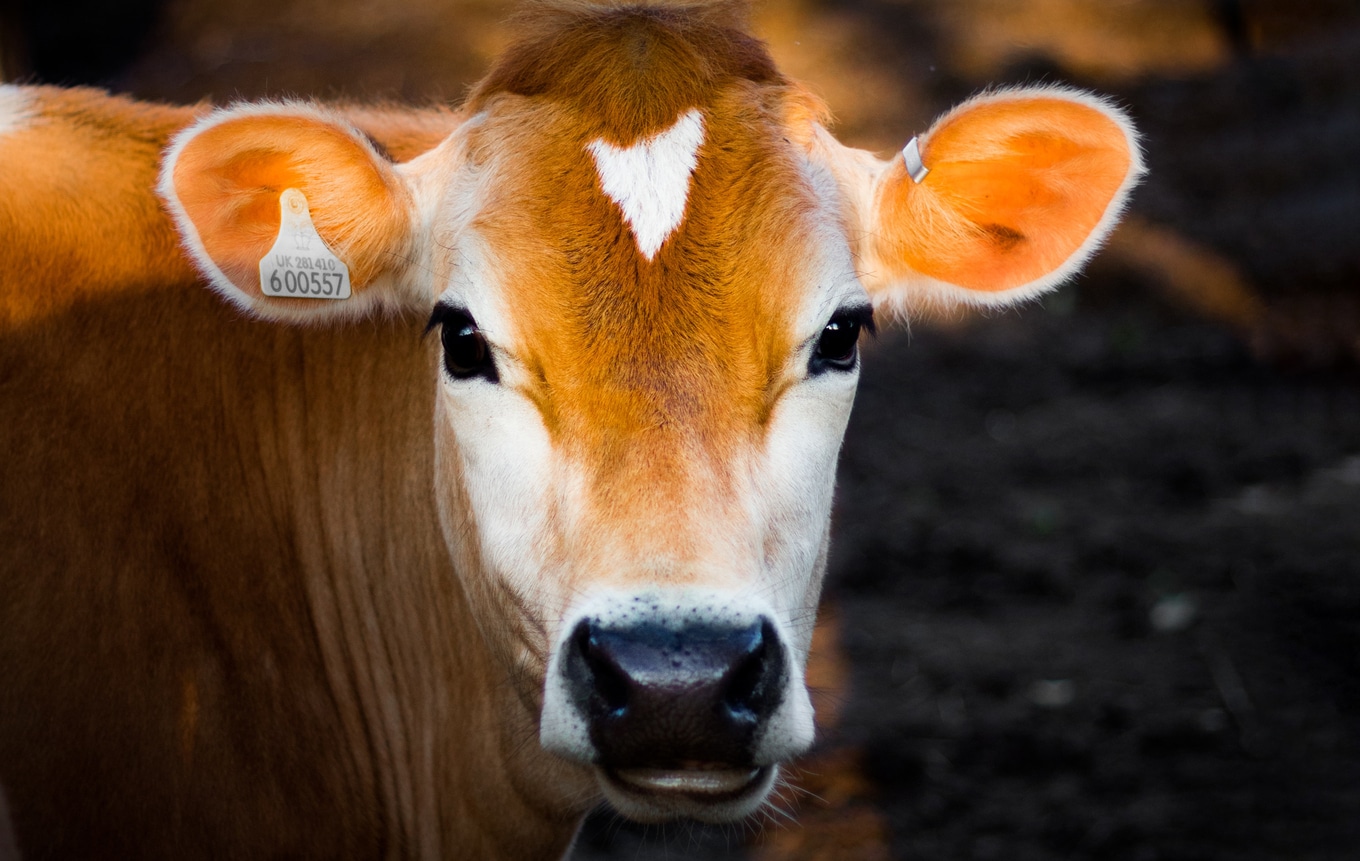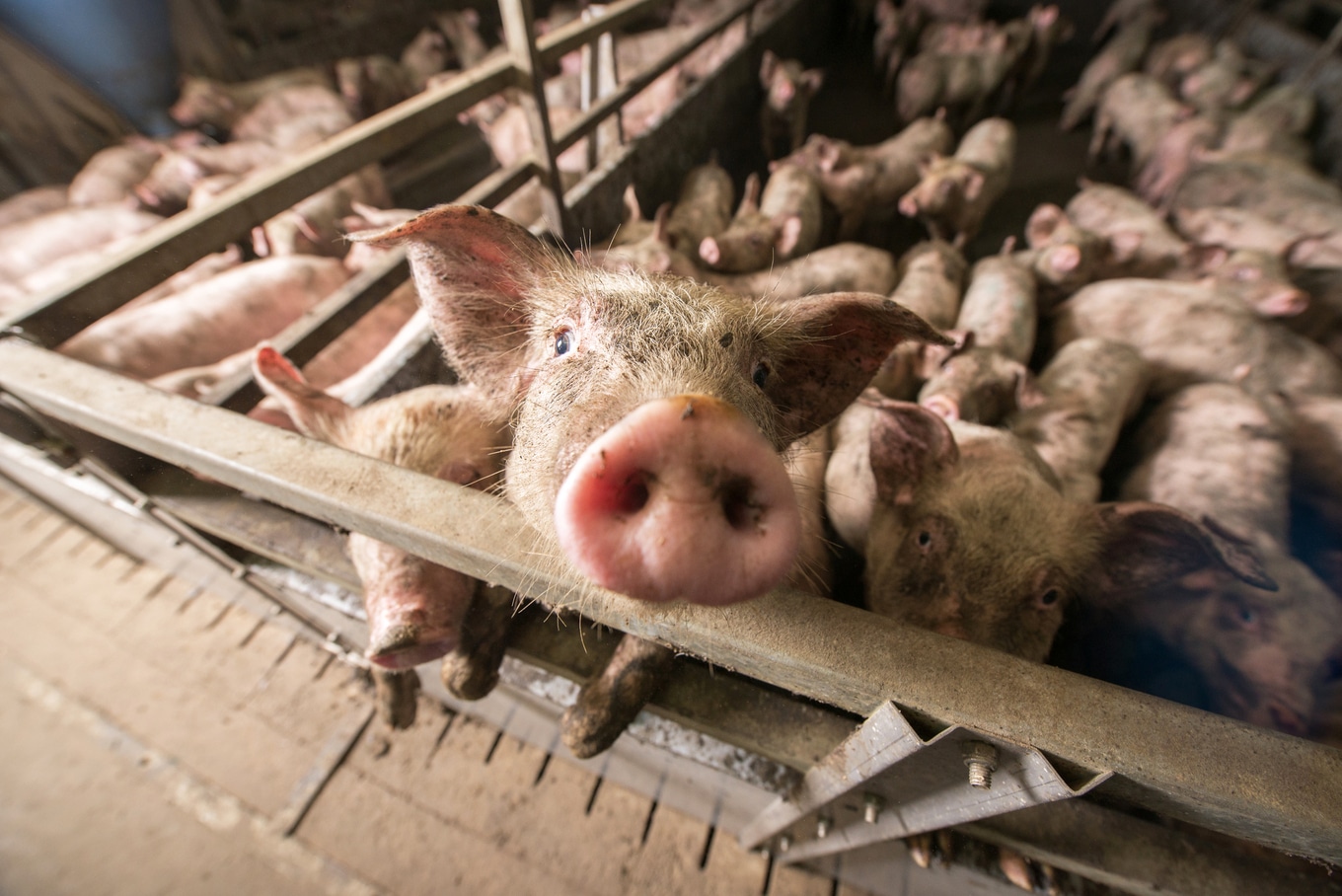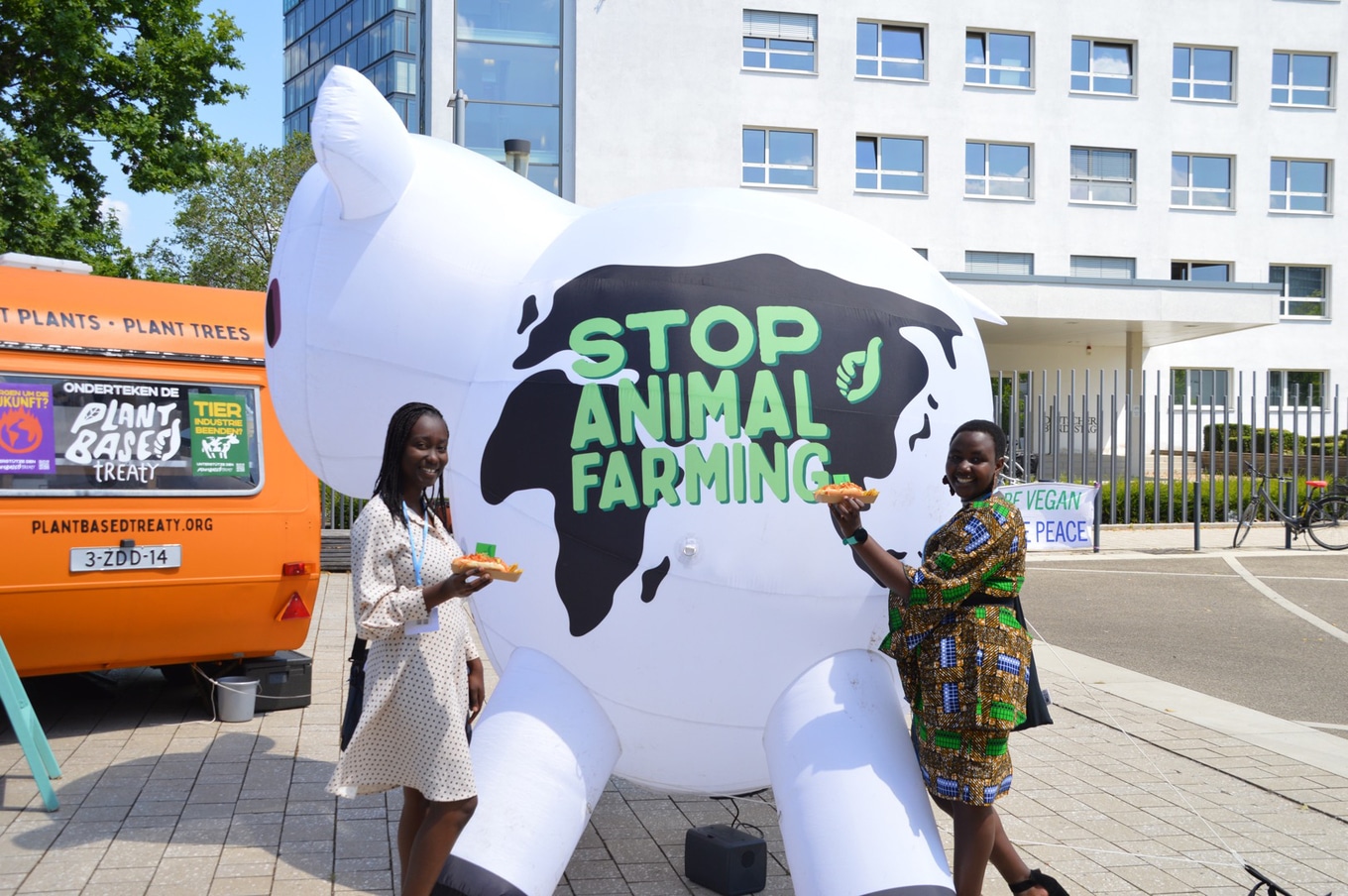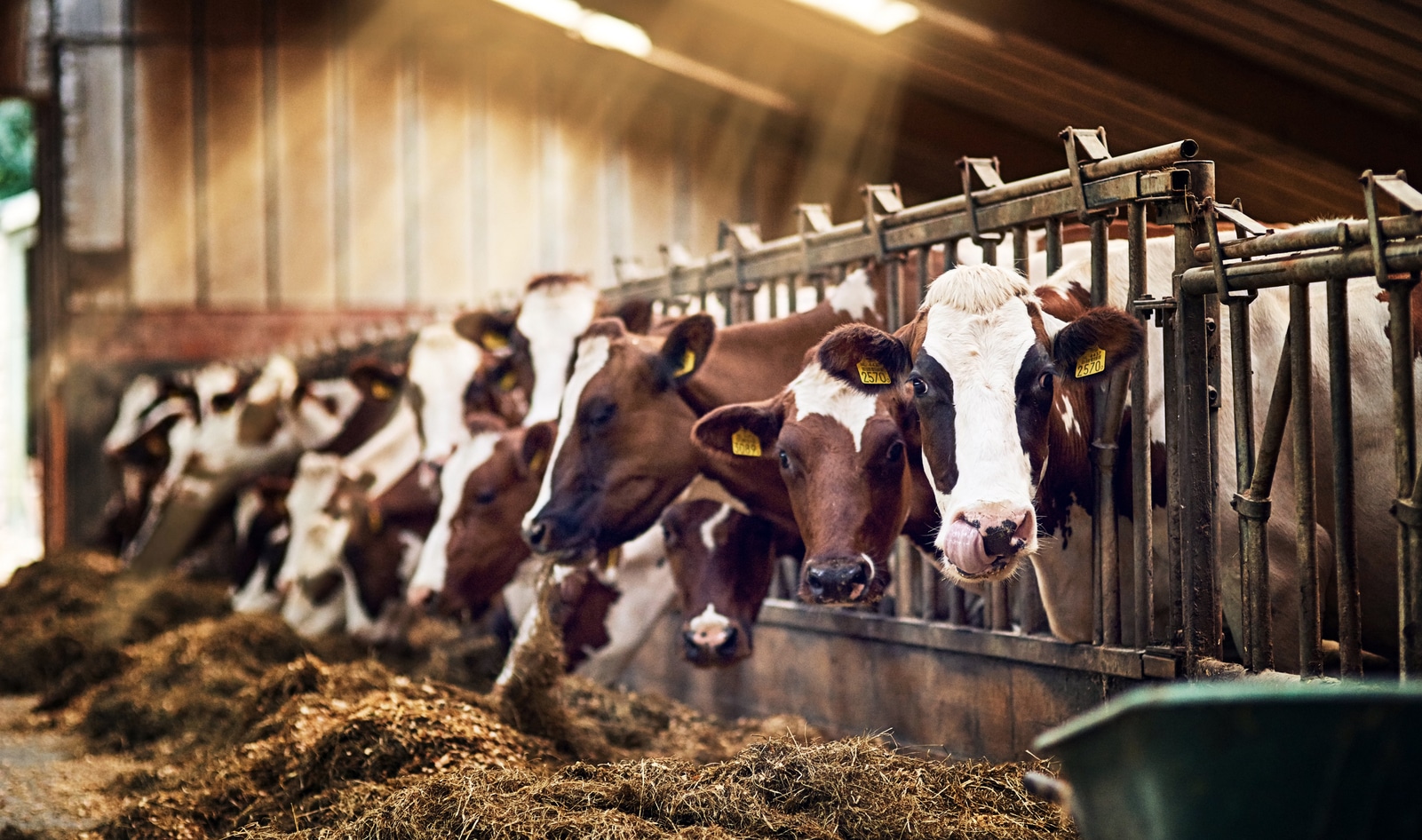Science continues to point to the major role that animal agriculture plays in the climate crisis, including a study published this month in the journal Nature Food. Led by researchers at the Universities Groningen of Birmingham, the study found that over the last 20 years (from 2000 to 2019), food-related greenhouse gas emissions increased by 14 percent.
Researchers found that increased consumption of animal-derived foods was responsible for 95 percent of these increased emissions, with beef and dairy accounting for 32 percent and 46 percent, respectively.
 Luke Stackpoole/Unsplash
Luke Stackpoole/Unsplash
“A global shift in diets, including reducing excessive intake of red meat and improving shares of plant-based protein—will not only reduce emissions but avoid health risks such as obesity and cardiovascular disease,” Professor Klaus Hubacek, a corresponding author from the University of Groningen, said in a statement.
Further, food consumption in the five highest greenhouse gas-emitting countries (namely China, India, Indonesia, Brazil, and the United States) accounted for 40 percent of emissions from the global food supply.
Putting food-related emissions on the table at climate conferences
How are world leaders addressing this issue? Ahead of the UN’s big COP28 summit in Dubai in December, world leaders gathered for the Framework Convention on Climate Change (UNFCCC) conference in Bonn Germany this month.
A number of groups, including Humane Society International (HSI), were in attendance at this conference to bring the topic of shifting away from animal agriculture to the forefront of climate discussions.
“Although we are encouraged that the UN is increasingly acknowledging the role that food plays in climate change and beginning to include food systems on the agenda during climate conversations, the SBs [subsidiary bodies] made it clear there is still much work to be done,” Stefanie McNerney, Senior Manager of Food Policy at HSI, who was in attendance at Bonn, tells VegNews.
“Agriculture and food systems continue to receive far less attention than a sector that is responsible for nearly one-third of all human-caused greenhouse gas emissions deserves,” McNerney says.
More than 92 billion land animals are slaughtered for food every year according to the most recent statistics from the United Nations’ Food and Agriculture Organization (FAO). If demand for animal products is not reduced, this number will only continue to increase in tandem with the growing world population—all to the detriment of the planet.
 Getty
Getty
“If we are to meaningfully address the challenges of climate change, we cannot continue with business-as-usual practices—not in the energy sector, nor in the transportation sector, and certainly not when it comes to agriculture and food systems,” McNerney says.
“Governments and other stakeholders must work towards a just transformation of our global food systems—paving the way through major policy reforms, substantial investment, and creating enabling environments that foster and embrace innovation,” McNerney says.
Vegan hot dogs at Bonn Climate Conference
At Bonn, activists from The Plant Based Treaty (PBT)—which advocates for a transition to a global plant-based food system—distributed 2,000 vegan hot dogs at the entrance of the conference for three days to start the conversation about the need to shift toward more sustainable proteins.
 Plant Based Treaty
Plant Based Treaty
“Because of these hotdogs it was so much easier for us to talk about the protein shift because people just had a positive experience with vegan food,” PBT organizer Lea de Zwart said in a statement.
“Climate conferences should definitely be vegan, it’s important we lead by example and show what can be done,” de Zwart said.
Like its predecessors, the Bonn Climate Conference was decidedly not vegan. In fact, coffee booths at the conference charged an additional €0.50 for soy and oat milk substitutions. PBT called upon the UNFCCC and World Conference Center to end this surcharge, citing the hypocrisy in creating an obstacle for attendees looking to make climate-friendly choices.
“Climate conferences should not be providing financial incentives for delegates to consume dairy, which is fueling the climate crisis, deforestation and draining freshwater supplies,” Tim Werner, PBT scientific advisor, said in a statement.
“The UN must end the plant-based tax; if there are going to be surcharges, they should be applied on products containing polluting meat and dairy, or better yet, make climate conferences vegan,” he said.
Making the case for a plant-based food system
The PBT also held a press conference during Bonn to bring attention to the urgency of the issue of animal agriculture-related emissions. Already signed by more than 20 global municipalities, the PBT advocates for a shift with three tenants: Relinquish (freeze expansion of animal agriculture to halt environmental destruction); Redirect (shift toward a plant-based food system); and Restore (rewild natural habitats to restore balance).
Werner presented climate data that outlined the need to address animal agriculture as part of climate mitigation strategies.
“Animal agriculture is the leading cause of biodiversity loss, large-scale deforestation, soil degradation, and water depletion and it’s a leading cause of global warming and chemical pollution,” Werner said.
At the Bonn Climate Conference, PBT also launched a petition to demand that all future climate conferences bring sustainable food to the table, both literally (by switching to plant-based catering) and figuratively (through policy change).
 Plant Based Treaty
Plant Based Treaty
So was any progress made at Bonn? McNerney says world leaders did begin negotiations around the new Sharm el-Sheikh joint work to implement climate action on agriculture and food security. However, despite a good start, the sessions concluded without tangible outcomes, and further discussions were tabled until COP28.
“This disappointing conclusion was slightly alleviated by the openness and interest some negotiators showed in engaging with civil society on topics such as protein diversification,” McNerney says. “We hope to continue to see this interest and engagement going forward, and we will continue to advocate for an increased focus on global food systems transformation.”
For the latest vegan news, read:
JUMP TO ... Latest News | Recipes | Guides | Health | Subscribe









